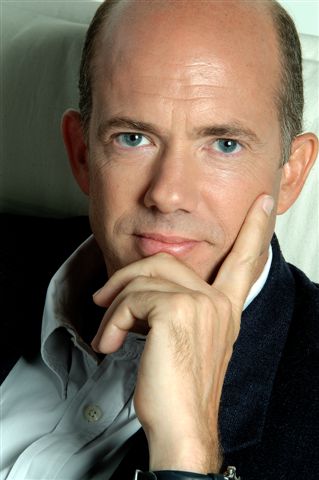Economist's View: Galbraith and the Galbraithians...Richard Parker, John Kenneth Galbraith's biographer, says the media has not adequately described his views. He says he was not a liberal, a Keynesian, or an advocate for big government. But he was an advocate for his own beliefs whether or not they agreed with the party line:
Galbraith's oversized shadow, by Richard Parker, Commentary, LA Times: 'As this is written, American liberals have made scarcely a new proposal for reform in 20 years. It is not evident that they have had any important new ideas…. Rather, they have had a file. Little is ever added. Platform making consists, in effect, in emptying out the drawers."
Can you guess the author of these words? Rush Limbaugh? Tom DeLay? Newt Gingrich? George Will? ... The author is John Kenneth Galbraith. "The state is the kind of organization which, though it does large things badly, does small things badly too." Galbraith again. "Free trade is preferable to the alternative." Again.
When Galbraith died ..., it was front-page news worldwide ... The flood of obituaries and remembrances got the facts mostly right, but few came close to portraying well the man I knew. I'm his biographer, and I found myself wincing all too often when he was too-neatly described as "a liberal," "a Keynesian" or "an advocate for 'big government.' " A man, in short, of a time gone by.
Galbraith wasn't, in fact, any of those things — not, at least, in the way those words are used today. On the contrary, he'd carried on as many arguments in his time with liberals, Keynesians and big-government proponents as he had with their opponents.
He was — for all his elegant wit and stylish friends — a farm boy first. ... Independence of mind and spirit was what he admired foremost. Unlike many liberals, he never viewed markets as an evil meant to be broken by government — but as the opportunity for invention, creativity and the fulfillment of essential human needs. Moreover, ... he actually admired big corporations for their ability to do things small firms found harder: basic research, economies of scale, innovation. Indeed, ... he admired fellow Scot Adam Smith as much as he did John Maynard Keynes — admiring them so much that he spent much of his life trying to rescue them from acolytes who'd misunderstood their genius.
Galbraith had few illusions about government. Appointed by President Franklin D. Roosevelt at the tender age of 32 as the nation's World War II "price czar," he'd seen close up not only the baleful influence of special interests — their lobbyists and legislators ever ready to do their bidding — but the frequently chaotic and venally incompetent mismanagement that defines bureaucracies in times of greatest challenge.
At war's end, as director of the U.S. Strategic Bombing Survey, he moreover got to see at close range not only the false claims made for military power (strategic bombing, it turned out, hadn't crippled German war production) but the gathering strength of what President Eisenhower would later call the military-industrial complex, and its ambitions in and for the postwar U.S. ...
Power was the subject that fascinated him, and it was the underlying topic of everything he wrote ... He argued with mainstream Keynesians for years — not only with the academics because he thought their preoccupations with abstraction and mathematics crippled their ability to see the world as it is, but with Keynesian policymakers as well, for their arrogant confidence that government could, with the right models and computers, easily deliver a world of permanent full-employment output. The world was too complex, the need constantly to adapt to changing circumstance too great ...to imagine anything so blackboard perfect.
Galbraith was never afraid of using power, either as an insider or outsider. When advisors ... tried to persuade the president to go to war in Southeast Asia, Galbraith as early as the summer of 1961 virtually alone began warning Kennedy of the folly of this "foreign misadventure." ...
When, in early 1965, ... after months of private arguments with President Lyndon B. Johnson over expansion of the war but long before most of the country agreed — he declared his departure memorably. His letter to LBJ, outlining a strategy for withdrawal, began..: "Mr. President, despite much official crap to the contrary, we are going to lose in Vietnam." ...
President Clinton admired Galbraith enough that shortly before he left office, he wrote with the idea that the two of them would write a book on the future of American government. Galbraith weighed the idea for a while but finally declined. He liked Clinton, he said, but Clinton hadn't learned a basic truth about politics. "As I told Harry Truman," Galbraith said, "what this country doesn't need is two Republican parties. One is more than enough."
